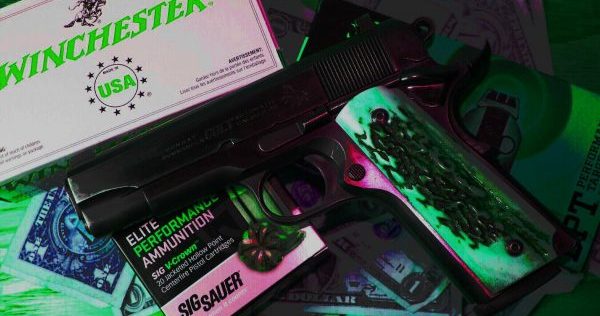
There is no small irony in this because today is the one-year anniversary of the filing of the original lawsuit against the city by the Second Amendment Foundation (SAF), National Rifle Association (NRA) and National Shooting Sports Foundation (NSSF), along with two Seattle retailers and two private citizens. The gun tax levies $25 for the retail sale of every firearm, five cents per round on the sale of centerfire cartridges and two cents on every rimfire cartridge. Seattle won the first round in King County Superior Court, and plaintiffs appealed. The hearing will be before a three-judge panel.
At issue is the city’s authority to charge such a “tax” under the state’s 34-year-old model preemption law. Here’s what that statute says:
The state of Washington hereby fully occupies and preempts the entire field of firearms regulation within the boundaries of the state, including the registration, licensing, possession, purchase, sale, acquisition, transfer, discharge, and transportation of firearms, or any other element relating to firearms or parts thereof, including ammunition and reloader components. Cities, towns, and counties or other municipalities may enact only those laws and ordinances relating to firearms that are specifically authorized by state law, as in RCW 9.41.300, and are consistent with this chapter. Such local ordinances shall have the same penalty as provided for by state law. Local laws and ordinances that are inconsistent with, more restrictive than, or exceed the requirements of state law shall not be enacted and are preempted and repealed, regardless of the nature of the code, charter, or home rule status of such city, town, county, or municipality.”
The gun tax is modeled after a similar tax passed in Cook County, Illinois three years ago. That tax was adopted ostensibly to reduce “gun violence.” But considering the body count in Chicago, the tax has been an absolute failure.
As reported by the Chicago Tribune on Monday:
So far this year, more than 2,700 people have been shot in Chicago, according to data kept by the Tribune. All of last year there were 2,988 shooting victims. The number of homicides through this year’s first eight months is around 460, nearly 30 killings shy of the total for all of 2015.”
Seattle’s tax was championed by City Council President Tim Burgess last summer. When it was adopted slightly more than one year ago, Burgess estimated that the city could rake in between $300,000 and $500,000 annually in revenue. That money would be earmarked for use in outreach and education efforts, but not necessarily to offset the actual costs of “gun violence” in the city.
However, the city has refused to disclose how much revenue is actually being realized, despite repeated requests from TheGunMag.com (TGM), a SAF-owned firearms news magazine available online and as a monthly print publication. TGM filed a Public Records Act request for that information in mid-April.
The city contends that it will not release the information “at this time due to the limited amount of information received to date and legal requirements for protecting taxpayer confidentiality.”
There are a handful of stores in Seattle that sell firearms and/or ammunition. Precise Shooter, one of two retail plaintiffs in the gun tax lawsuit, has already moved operations outside of the city. The other commercial plaintiff is Outdoor Emporium.
It is the first time in history that NRA, SAF and NSSF have all partnered in a single legal action. They contend that the gun tax was adopted purely as a gun control scheme, which would be prohibited under the preemption statute.
Some critics in the firearms community believe the city adopted the tax to drive gun dealers out of business, or at least out of the city. Others see this as a multi-pronged effort to not only turn the liberal city into something of a “gun sales free zone” but also to erode the state preemption law, which has been a model for similar laws across the country.